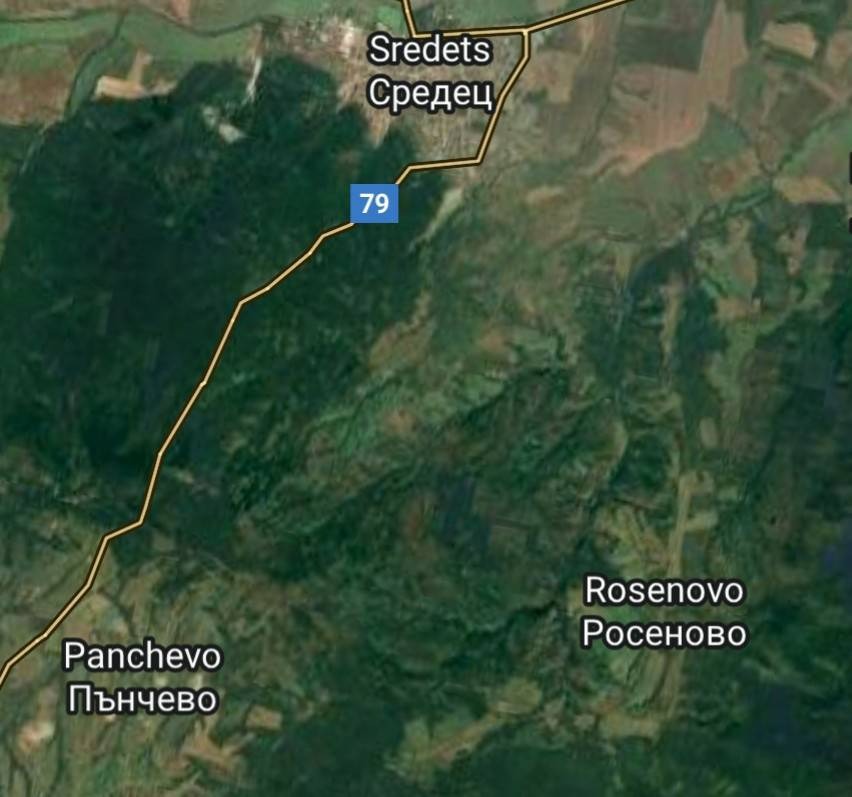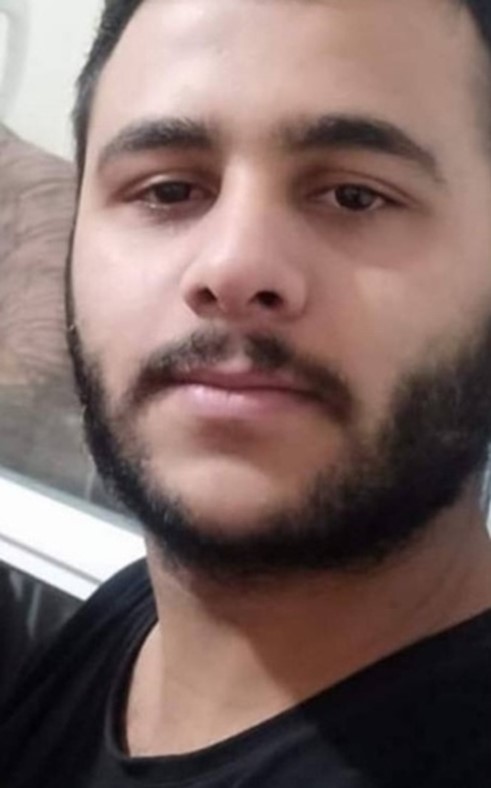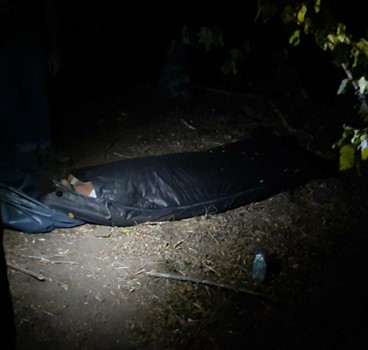Since late June, the Collettivo Rotte Balcaniche Alto Vicentino has embarked on a project of active solidarity and monitoring at the outermost border of the European Union, the border between Bulgaria and Turkey.
We publish the third report 1 on “search and rescue operations” that the Collettivo is carrying out, responding to emergency calls reporting the presence of migrants in distress at the border areas, but also people who have been missing for weeks or months.
This chronicle recounts the discovery of the lifeless body of Saif Al-Ahmad, a 22-year-old Syrian boy. Like him, many others attempt the journey every day and die in the forests, unknown to anyone.

The call for help
Saturday, August 26, 2023. At 8:30 p.m. Consolidated Rescue Group sends us a report: Saif Al-Ahmad, a 22-year-old Sirian boy, fall down in the woods. We pack our backpacks. We know, given the previous experiences of our comrades, that it will be a long night. We bring flashlights, food, something for the cold and humidity. We leave without having dinner and call 112. On the other end of the line, we find a helpful person, but unfortunately the language barrier creates misunderstanding and stiffening. Anyway, after a series of phone calls in which we provide the coordinates of the boy’s location and ours, the operator reassures us: the ambulance has been called.
The boy’s location is in a hilly area between the villages of Rosenovo and Panchevo. Having discovered that the dirt road soon becomes impassable in Panchevo, we decide to approach the coordinates via Rosenovo. Shortly after leaving the village, as the road becomes impassable for our vehicle, we park and call 112 again.
«The Police was there and they didn’t find anybody»
It is 00:35, two hours have passed since we reported the need for an ambulance, and we ask for updates. The 112 operator, this time a person with a decidedly less gentle voice, reassures us that an intervention has taken place and provides the name of the person in distress, a name that we will have to repeat multiple times in subsequent calls because, as we are told, it’s not registered. We point out that although we are in Rosenovo we don’t see either the ambulance or the police. We wait for several minutes while the operator translates the call to the “duty officer“. Then we are informed that the police have already done their job: “The police have been there and found no one. Why do you want to go there?“. The tone is dry and decisive, as if trying to dissuade us from going to the scene. We insist, expressing concern for the young man: how could he be missing if he was unconscious? We are asked to go to the centre of Rosenovo and wait for the police. We agree and reiterate the Saif Al-Ahmad’s location, even though it seems to coincide with the information they already have.
Not even time to restart the car that the phone rings. The 112 operator asks if we are in contact with the boy, how we know his location, and why we chose to pass through Rosenovo. We explain our role in supporting people on the move and why we ended up in that town. After further waiting, the operator claims to have provided the “new” location of the boy (although we kept dictating the same coordinates) to the police and states that there is no need to wait for them. We ask if we can carry on since the boy has collapsed. The operator agrees and advises us to be cautious while proceeding due to the wooded area and the night time hour.
We proceed on foot. After following a footpath, we descend along a ridge until we reach the course of a stream. The presence of backpacks, gloves and cans is a clear sign of the passage of a group of people. At 2:15, we arrive at the exact location of the report. We find a person inside a sleeping bag with his face covered by a carefully folded plastic sheet. We try to move him to see if he reacts, but the body is stiff. We remove the sack from the head; the face is covered up to the nose by the hood of a sweatshirt. The mouth is half-closed, there is no breath. The young man is dead.
We realize that our phones have no signal, so we move. It’s 2:27 a.m. when we call 112 again. We identify ourselves again and explain that we have been to the provided coordinates, which, moreover, the operator claims to already know and repeats to us. We point out that we were told that the police had not found anyone; on the contrary, we have been to the exact coordinates provided and found the young man deceased. We request the immediate dispatch of an ambulance to recover the body.


«Rosenovo does not exist»
While waiting for the ambulance, we take a short break on a glade. We see a tiny flashing dot among the stars. The contrast between the travellers in the sky and the traveller lying on the ground not far from us is a heavy read. We return once again to Saif Al-Ahmad’s body to confirm the accuracy of the location. We move away again since there is no signal. We get lost. Only later, when checking the call history, do we realize that we wandered in the woods for over an hour. At 4:10 a.m., 112 calls us. After 3 minutes of waiting, they hand us the coordinator. Once again we are asked to report the location and whether we have found the body. After responding, we insist on requesting someone’s dispatch. The coordinator says they are looking for the man and asks us to stay there.
Shortly after, they call us back and propose to go to Fakiya. We report that we are still in the forest near Rosenovo. The operator claims that in a previous call we said we were near Fakiya (note: false) and argues that Rosenovo does not exist. We spell out the name of the village, but the operator insists that there is no village by that name (note: previous operators had mentioned it instead). He keep urging us to go to Fakiya, which is about 30 km from where we are. To find a compromise, we suggest meeting in Sredets, which is closer to us, and report that we could probably be at the location of the appointment in an hour. The operator is impatient with our inaccurate timing and the fact that we cannot be where he wants us quickly. We agree to call back when we arrive at the vehicle.
Shortly after, another call interrupts our search for the lost trail. This time, they ask us a new question, which is also not very insightful. They request to speak with a male person. They ask for our location and, having checked it, we are told that there is no village by the name of Rosenovo near us. Not only does the operator not offer to help us despite the fact that we repeat that we are parked right in Rosenovo, but not at all concerned, he starts asking for the model and license plate of the car and, for the umpteenth time, our precise location. We communicate our predicament in a firm tone: it is late at night, we are in the middle of a forest, close to the body but lacking a sense of direction; we will call them back when we are at the car and help, if necessary, the police to reach the deceased man.
At 6:20, we arrive at the car and call 112 again. Once again, they request information from us: we share our coordinates, the car’s make, and the license plate. As if that weren’t enough, they ask us to recount everything that happened during the night. We explain in chronological order what happened, noting that the coordinates of the young man were accurate and that no one had taken action even though 8 hours had passed since the first call, in which a person in distress was reported, not a deceased individual.
The Border Police arrives
At 6:45, the Border Police arrive in a pickup truck, wearing camouflage pants and black jackets. They are a pair of officers, with one of them displaying a more intimidating demeanor and immediately asking for our documents. The other officer takes out his phone and wants to communicate through a translator. We follow them until the point where our car can no longer proceed. At that point, we ask if we can ride in their vehicle, but they deny it according to protocol. They already have the location of the young man, which we compare with the information we have. They match. They tell us we can follow them on foot or wait there, and we decide to wait in the car.
At 9:15, the pickup truck returns, but only the more aggressive officer is inside, and he doesn’t stop but continues on. Two of us decide to return to the scene to see what is happening. During daylight and with better transportation means, the location is easier to reach: the Bulgarian police have managed to get to within about 15-20 minutes on foot from where Saif Al-Ahmad is. In the following hours, more officers arrive, and only shortly before noon does the ambulance arrive. Our attempts to help are ignored.
Our presence no longer seems useful. It’s now noon when we get back in the car, and we have more than two hours of travel ahead of us. Our main desire is to slouch among the seats. In the opposite direction, cars are speeding toward Burgas. Who knows, maybe someone is heading to the beach. We feel the need for life. It’s summer and it’s hot, but we don’t feel like going to the beach. Along the road, there are numerous checkpoints, which prompts us to reflect once again. We think about the place where we spent the last few hours: before coming here, hearing about the forests of Bulgaria brought to mind rugged, dark places, a sort of labyrinthine black forest. After a few days spent near Route 79, our imagination has changed. These are forests where you can get lost, yes, and we experienced it firsthand. But they are forests surrounded by cultivated fields, and the locations we receive are not so far from dirt roads. Here and there, you can see farmers’ houses, hear the cowbells or the engines of tractors. What causes the death of those who cross them are not the woods but the borders, those who argue for their necessity and those who defend them with the teeth of dogs and loaded guns.
Perhaps we will return the body of a 22-year-old to his parents. Perhaps the repatriation procedures will be so difficult that the burial will only be allowed on Bulgarian soil. We return home in silence; we have no desire to talk.
There’s a scream in our heads that takes the form of questions: why did 112 discourage us from going to the place? Why did they say there was nothing there?
Why, when we were near the body, did they tell us to reach a city more than 30 km away?
Why did Saif Al-Ahmad die?
- See also: Bulgaria, «Let somebody die is killing». Collettivo Rotte Balcaniche Alto Vicentino: Chronicle of a failure to render aid on the Bulgarian-Turkish border (agosto 2023)
«Torchlight, shedding light on the violent opacity of the European border regime». The first report from Bulgaria by Collettivo Rotte Balcaniche (settembre 2023)




